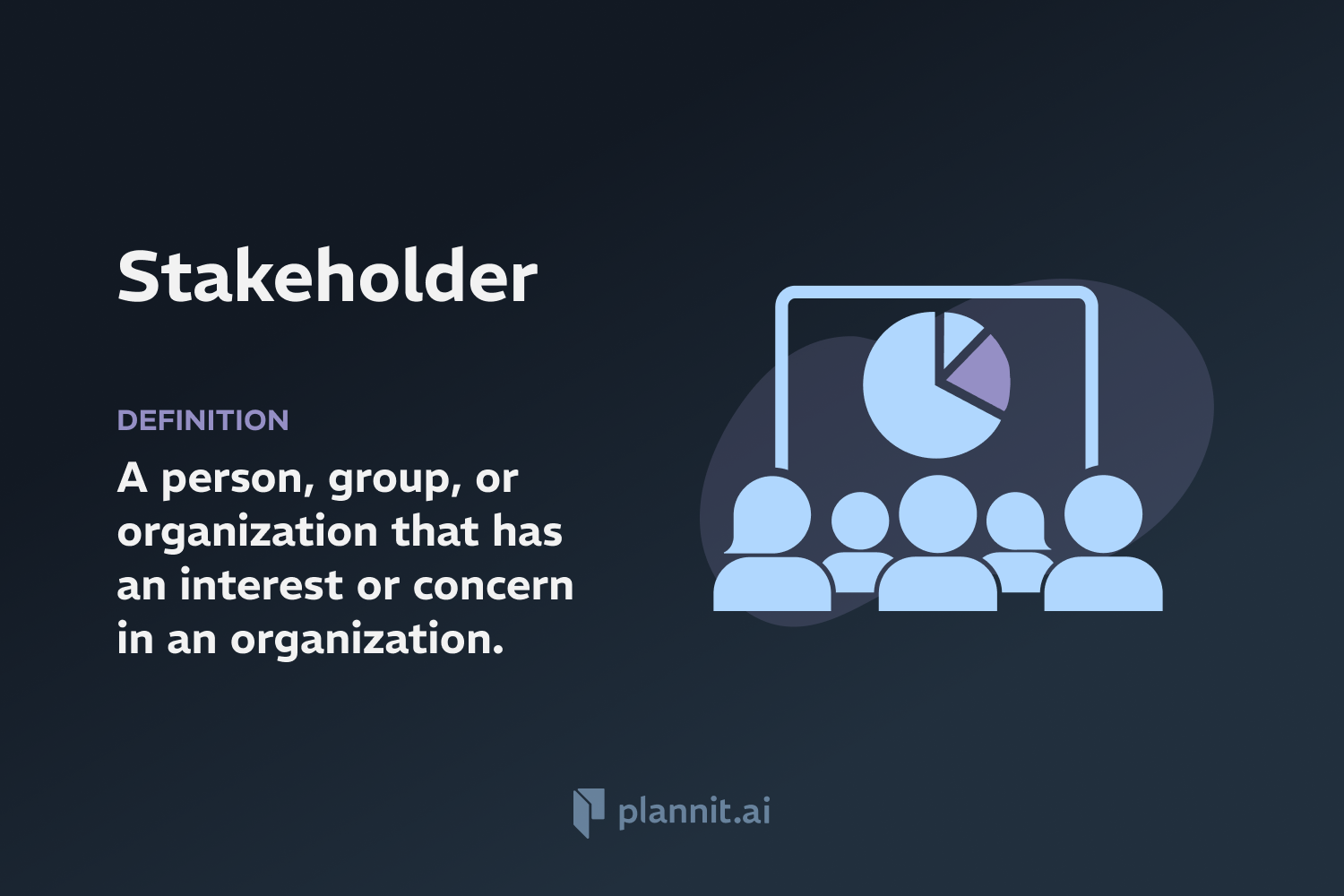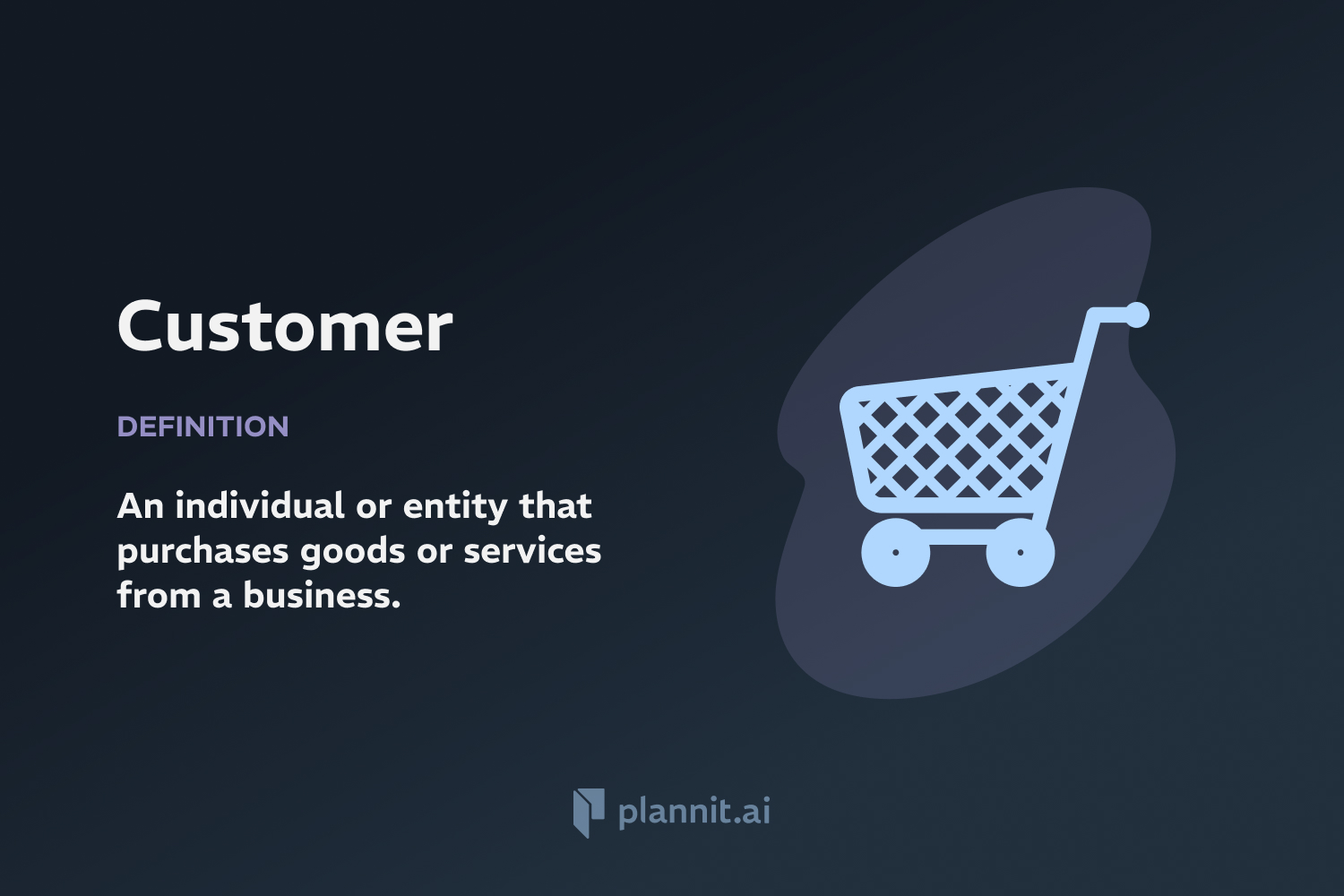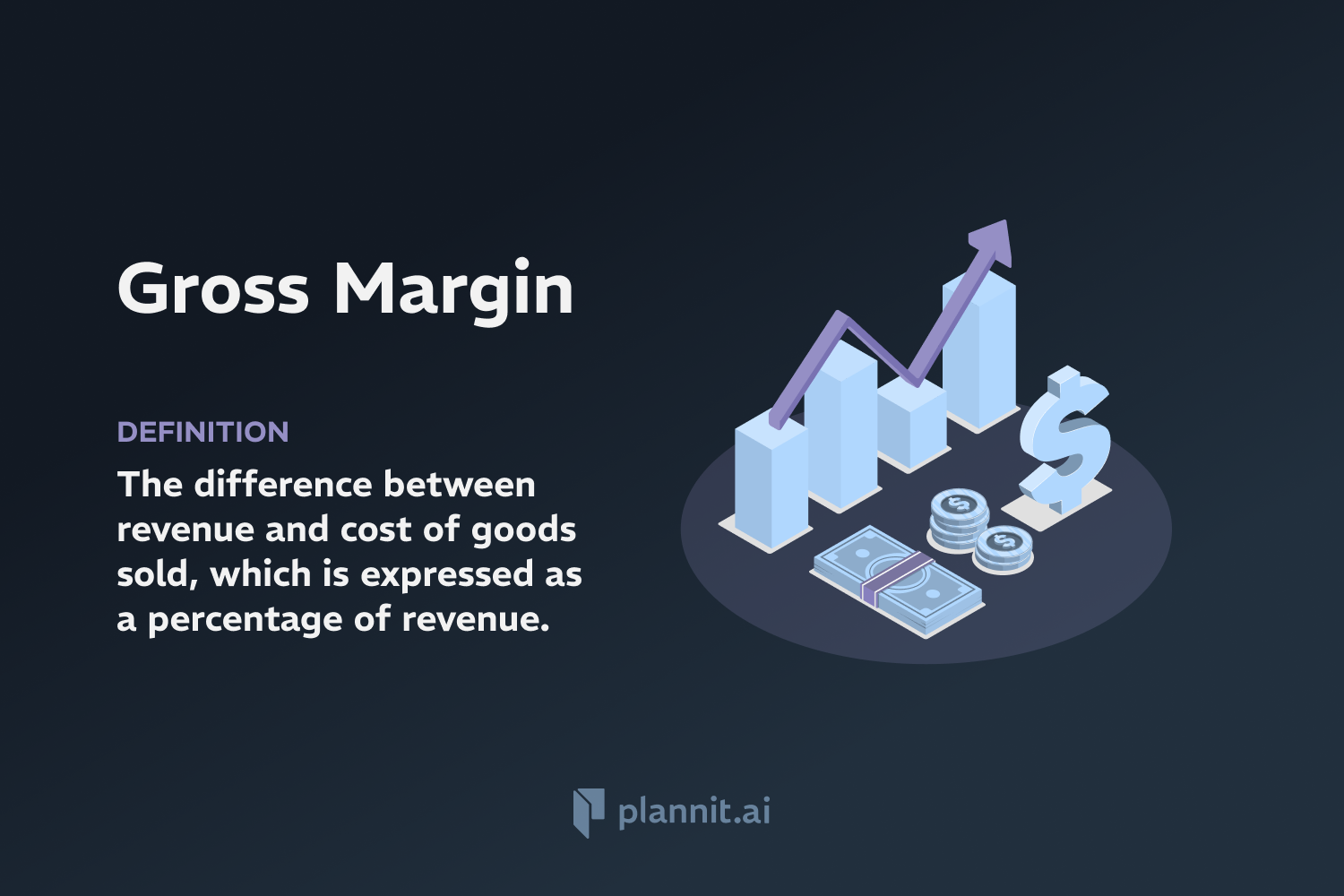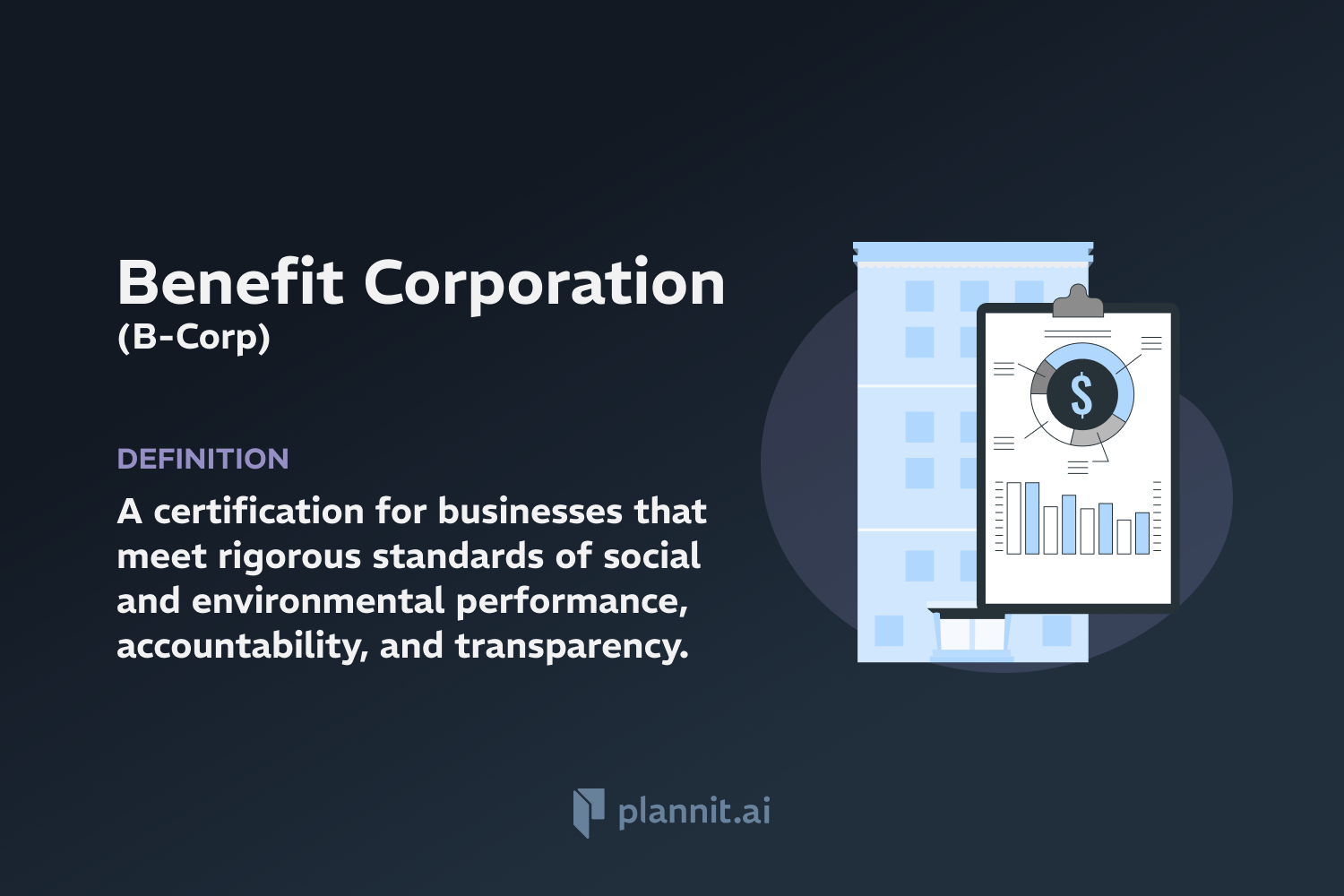Need Help With Your Business Plan?
Answer tailored questions and get a detailed business plan in minutes.
Stakeholder: Definition & In-Depth Explanation

A stakeholder is any individual, group, or organization that can affect or be affected by the actions, objectives, and policies of a business or a project. Stakeholders can be internal (employees, managers, and owners) or external (suppliers, society, government, creditors, shareholders, customers) to the organization. Identifying and managing stakeholder relationships is crucial for businesses, especially in project management, corporate governance, and public relations. Understanding stakeholders' interests and concerns is vital for the success of business strategies and operations.
Purpose:
The purpose of stakeholder engagement is to build sustainable relationships that support mutual goals and long-term success for both the organization and its stakeholders. Effective stakeholder management helps a business secure and maintain a competitive advantage by ensuring that the interests of those who can influence or are influenced by the company are considered and addressed in a strategic manner.
Example:
In a large infrastructure project, such as the construction of a new bridge, the stakeholders might include the construction company, the local government (which could be funding and regulating the project), the communities living near the project site (who are affected by construction and usage), environmental groups (concerned with the project's impact on local ecosystems), and future users of the bridge. Each stakeholder group has specific interests and concerns, such as completion time, safety standards, environmental protection, and traffic relief, which the project managers need to balance and address.
Related Terms:
Stakeholder Engagement: The process by which an organization involves people who may be affected by the decisions it makes or can influence the implementation of its decisions.
Stakeholder Analysis: A technique used to identify and assess the importance of key people, groups of people, or institutions that may significantly influence the success or failure of an activity or project.
Corporate Governance: The system of rules, practices, and processes by which a firm is directed and controlled, focusing on the interests of various stakeholders in the governance of the company.
Shareholder: A specific type of stakeholder who owns part of a public company through shares of stock.
FAQs:
How do stakeholders influence a business?
Stakeholders influence a business through their ability to affect outcomes (positively or negatively), provide resources, and impact public perception and regulatory environments.
What is the difference between a stakeholder and a shareholder?
A shareholder is a stakeholder who owns part of a company through shares, focusing primarily on financial returns. However, stakeholders include any individuals or groups affected by or having an effect on a business, regardless of financial investment.
Why is stakeholder management important?
Effective stakeholder management builds trust and aligns business objectives with the needs and values of those impacted by business activities, thereby ensuring smoother operations and mitigating risks.
How can a company manage its stakeholders effectively?
Effective management involves identifying stakeholders, understanding their needs and expectations, prioritizing them based on their influence and impact, and engaging them through communication and involvement in decision-making processes.
Can customers be considered stakeholders?
Yes, customers are key stakeholders as their satisfaction and loyalty directly affect a company's revenue and reputation.
Get funding with a business plan that will impress investors.
Starting a New Business?



